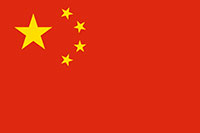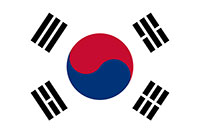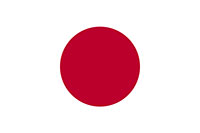HOME >>
Japanese aide visits controversial shrine on Abe's behalf
Source:Globaltimes.cn Published: 2013-8-15 17:07:00
| Latest News |
Photos: Japanese ministers visit controversial Shrine
Abe to make ritual offering at Yasukuni
Japanese Prime Minister Shinzo Abe will reportedly make a ritual offering at the controversial Yasukuni Shrine on the 68th anniversary of Japan's surrender during World War II on August 15 instead of paying a visit.
| Background |
The shrine became the most prominent of the roughly 100,000 shrines in the country after 14 convicted Class-A war criminals from World War II, including then prime minister Hideki Tojo, were enshrined there in 1978.
| Reactions |
 |
China urges Japan to reflect on history of aggression China urged Japan to abide by its commitment to recognize and examine its history of aggression so as to gain trust from victim countries as well as the international community on August 14. Beijing calls upon Japan to follow 1976 peace and friendship treaty The China-Japan Treaty of Peace and Friendship of 1978 should be commemorated and followed well, Chinese foreign ministry spokesman Hong Lei said on August 12. |
 |
Beijing, Seoul protest over possible Yasukuni visits China and South Korea have expressed opposition to Japan over possible visits by its cabinet members to the Yasukuni Shrine in Tokyo on August 15, the day that marks Japan's surrender in World War II. Seoul warns against visiting shrine Yonhap news agency reported that Seoul on August 12 warned Japanese politicians against paying respects next week at the contraversial Yasukuni Shrine, after Japanese media reported that Sanae Takaichi, the ruling Liberal Democratic Party's policy chief, would visit the shrine together with other politicians on August 15. |
 |
Ministers have freedom to visit Yasukuni Shrine: Japanese PM Japanese Prime Minister Shinzo Abe said on August 13 he would not prevent his cabinet ministers to visit Yasukuni Shrine on the August 15 anniversary, local media reported. |
| Comments |
Chinese media
Japan risks repeating mistakes of history
Japan's unity, if based on extreme nationalism, is bound to provoke nationalism in its neighboring countries, prompting hostility and confrontational sentiments. In turn, this will become excuses from Japan to extend its extreme nationalism, thus making itself the center of a political storm in Northeast Asia.
Yasukuni visit disrespects WWII anniversary
Many politicians are considering visiting the shrine to score political points. However, they are in fact playing with fire and harming their nation. Yasukuni visits risk further antagonizing countries including China, South Korea and poisoning the sentiments among the public of these countries.
Japanese politicians' shrine visits are shameless provocation
The visits, along with a string of recent provocations by Japanese right-wing politicians, are a visible sign that Japan fails to have a deep and profound reflection on its history of aggression and is hollowing out its post-war reconciliation.
A historic day for Japan to reflect on, learn from past
The Japanese government also should know such a simple truth: the best way to remember those killed in the war is to prevent the tragedy from recurring, and the best way to prevent the tragedy from recurring is to take concrete and sincere efforts to stop counterproductive moves to win back trust among people in Asia and across the world to preserve the hard-won peace in the region.
On August 15, 1945, Japan surrendered unconditionally to allied forces. However the sprit of its militarism still exists 68 years later, pervading Japanese political circles and society. It has become a negative influence on regional peace, stability and prosperity – an unexpected turn for those who cheered the victory of World War II.
According to Huang Dahui, director of the Center for East Asian Studies at Renmin University of China, an important reason why Japanese politicians continue to visit Yasukuni Shrine stems not only from historical misconceptions, but political motivations.
While many right-ring politicians still hold incorrect historical views and claim they are paying tribute to those that made the ultimate sacrifice for their country and they are also motivated by right-wing political forces.
Foreign media
Even the United States, Japan’s ally, is concerned about Abe’s views about history. If the Abe administration denies the historical fact of Japanese invasion in Asia, Japan’s views about history would come under harsher international criticism.
Politicians who insist that they are only paying tribute to those who died for their country when they visit Yasukuni are not telling the truth. If that's all they wanted to do, they could walk five minutes down the road to Chidorigafuchi National Cemetery, which is, like Arlington, Japan’s officially designated war cemetery.
Yasukuni visits matter because Japan risks further antagonizing China and South Korea at a time when Japan needs to improve ties. It is time to rebrand Japan, and that begins with leaders honoring the war dead at the site designated for doing so — the secular Chidorigafuchi National Cemetery in central Tokyo.
| Related Reports |
Shrine of controversy
Japan launches new hybrid carrier-warship
Abe targets energy projects
Aso says Nazis could offer lessons in reform
New York Times cautions Abe over his right-wing views
| News Vocab |
军国主义 jūnguózhǔyì
“军” n. armed forces; army; troops(Source: 《新世纪汉英大词典》)
“国” n. country; state; nation(Source: 《新世纪汉英大词典》)
“主义” n. political system; economical system(Source: 《新世纪汉英大词典》)
“军国主义” n. militarism(Source: 《新世纪汉英大词典》)
Web editor: gelili@globaltimes.com.cn
Posted in: